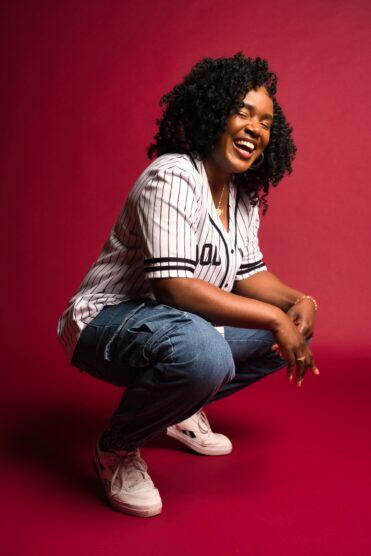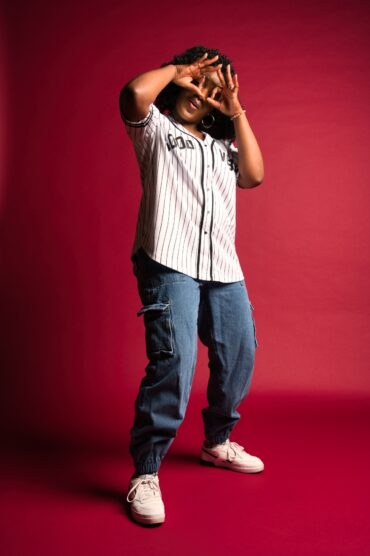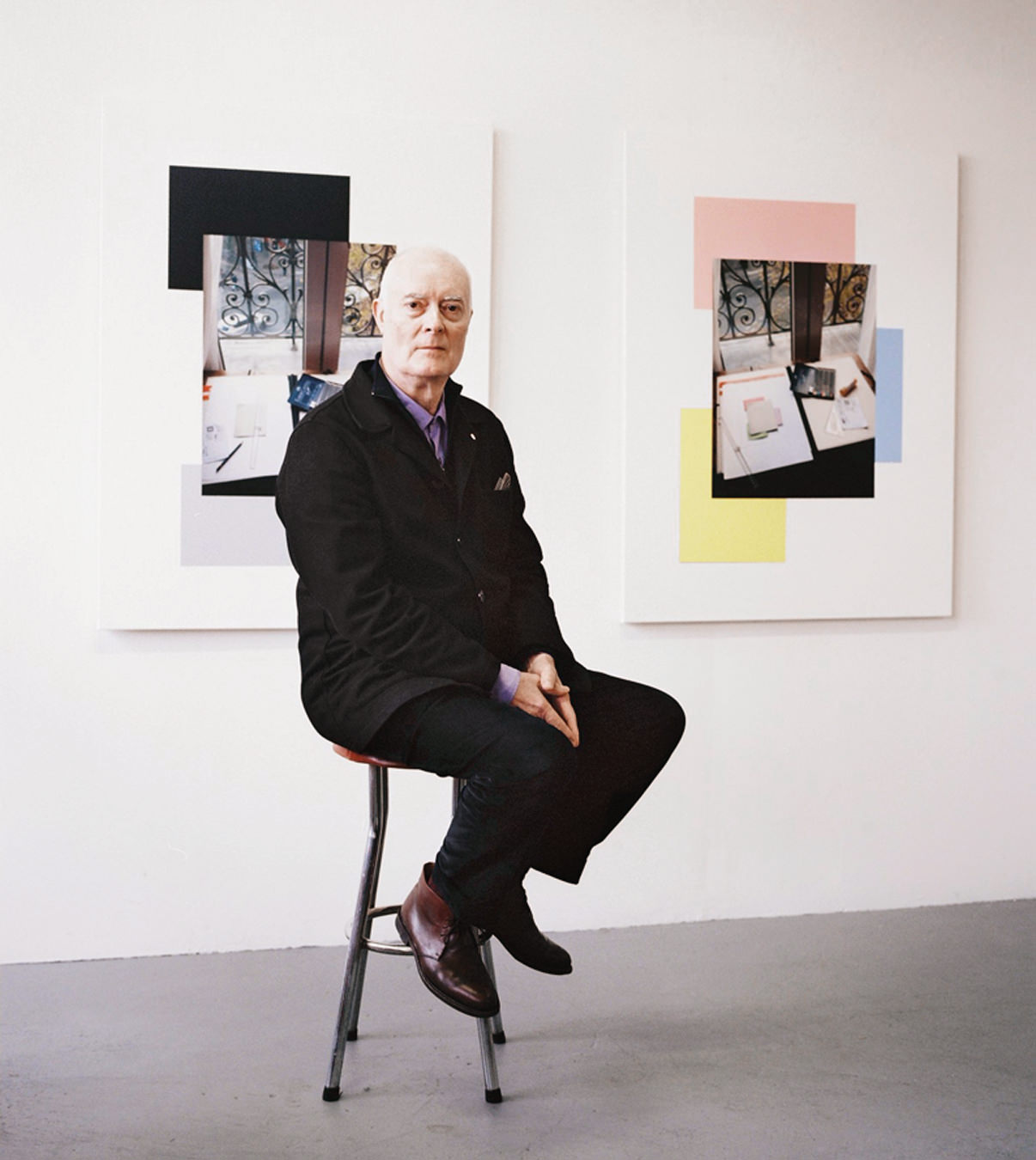Toronto Musician and Activist pHoenix Pagliacci’s Personal Journey and Dichotomy
At the heart of her latest album are community and collaboration.

Fresh off the success of her new album, and seemingly at the peak of her powers, pHoenix Pagliacci is quitting music. Or at least that’s according to a pre-release post on Twitter/X, in which the Toronto singer and rapper announced her retirement from hip-hop in pursuit of a career in political activism. “I (contractually) got one more album in me. Then I’m two-feet into my humanitarian role,” last December’s post read. “Shit is crazy right now.”
For Pagliacci, known in the hip-hop space for her mastery of emotional and often very political song-smithing, politics and music are inherently interlinked. Paying homage to some of pop, rock, and folk music’s most overtly political songwriters and performers, Pagliacci cites Bob Dylan and Rage Against the Machine as her inspirations in political song—alongside Pagliacci’s personal hero, the late Irish singer Sinéad O’Connor.
“Sinéad lived her whole entire life fighting for what was right, bringing attention to injustices and corruption. I mean, let’s face it, she took on the Catholic Church. She took it on, head on, and risked her entire career and sanity because of it. I think that is one of the most bravest, most badass things you can do—dedicating your life and your identity to doing the right thing,” she says.
“I think what people don’t understand is that, as an activist and an artist, not every single song has to be a rallying cry for a political event. Simply in your expression, in your interviews, in the way you are on stage, wearing simple slogans and flags—every opportunity that you have to speak about a topic or an issue that’s happening, that is your artistry.”
This understanding of the political as an underlying part of everyday life features throughout pHoenix Pagliacci’s latest (and potentially final) solo record, Dichotomy, whose central question concerns cancel culture and the way society treats those who have done wrong in the past. At the heart of Dichotomy is community and collaboration. Pagliacci and the seemingly endless cast of collaborators that she surrounds herself with on the album (Cadence Weapon, Shad, The OBGMs, Begonia, to name a few) are in constant dialogue about societal issues throughout the record, at points seeming to literally be deep in discussion as if sat around a kitchen table.

“Ever since COVID happened, a lot of us have become very isolated. A lot of artists have started doing the DIY thing and started really trying to internalize what their artistry means to them. And so the collaborative album that I just released, although it’s a solo project, was born out of conversations I had during that time with artists that I loved and respected and always wanted to work with,” she says.
___
“It was a moment where we all just needed to sit down and ask ourselves: what is artistry? What does it mean? Who are we? Where are we going? And, you know, how is this impacting our actual lives—and being really raw about those emotions and having that opportunity was really refreshing, and I’m very grateful for those peers that could, you know, have those conversations with me.”
In her current capacity as politically driven musician, the Scarborough native’s pragmatic approach to tackling injustice and confronting the other pressing issues of our time goes far beyond merely addressing the political issues and injustices of the day in song—Pagliacci has taken her into the world of music production. Through her work running Pagliacci Studios—a project that aims to provide a place for musicians from marginalized groups to create music—Pagliacci aims to foster a sense of community amongst those who are often found on the fringes of the music industry in a safe and welcoming space and to provide them with the skills to create music on their own terms. “We do mixing, masking, mastering, recording, production, and voiceover work. The clientele is predominantly women, it’s people of colour, it’s queer people, and all the demographics that when it comes to creating art are often uncomfortable in studio settings or discredited from charting, appearing on major labels, or not allowed in certain spaces to make that music.”
She explains, “I’m really big on community, because at the end of the day, we’re all people, and all we have is each other, so why not make someone else’s life better instead of worse, especially if they’re already experiencing adversity? Obviously, as a queer person of colour and as a female as well, it’s very challenging for me when I go into certain spaces, and if I don’t have to go into those spaces and I can provide the safe space that I wish I was afforded, then I will do that 10 times over rather than push myself into spaces where I’m already told I don’t belong. I want that experience for every creative who has ever been stifled simply because of who they are.”
Politics, identity, community, and the intersection of all three have been a long-running theme in Pagliacci’s career but have been brought to the forefront in her music in recent years, spurred on by the various political and economic crises of our times, from the Canadian bread price-fixing scandal to the unliveable conditions of the music industry for musicians, and from the effects of the pandemic to the ongoing war in Gaza. As it seems the world is devolving further into conflict, suffering, and inequality, Pagliacci’s focus and energy has naturally shifted from the recording studio to the streets.

“I never, ever could imagine that my grandmother, who marched in the ’50s and ’60s, could be looking now and saying, ‘Damn, I gotta get off my couch again,’ you know? ‘I gotta go hit the streets for Black lives to matter, and for immigrants to have rights and be safe. And I have to hit the streets again to make sure Trump doesn’t get into office.’ Like our ancestors, our elderly are tired, and I know our artist community is too. If we just continue to understand that this has been something that comes in cycles and waves but that will not defeat us, we’ll all feel a little less alone.”
Despite bringing politics and activism to the forefront of both her musical output and her public image, Pagliacci has come to the decision that her energy is of better use away from the music industry. The urgency of the climate emergency and the ongoing war in Gaza have galvanized her into the drastic career change that lies ahead. “I think that we all have some civic duty to contribute to making this world a better place, but music right now is oversaturated,” she says. “It’s very disheartening and very uncomfortable to sit down and really say, ‘Damn, my taxes go to killing children in Palestine. My buying of this company’s product is going towards dropping bombs on people who are refugees in their own country.’ It keeps me up at night, I’m not gonna lie, and until I can have a restful night’s sleep, I need to figure out my place in making this world a better place.”
She continues figuring out how to become involved in Canada’s efforts at international peacekeeping and international law. “I’ve actually had the opportunity to attend a lot of webinars and conferences and met a lot of Canada’s top scholars, educators, historians, lawyers, and I really feel like in learning and continuing to learn from these people who are already doing some of the work, I can find my purpose and figure out where I can be of most service to those in need.”
Despite being ready to call time on her solo career, at least for the time being, Pagliacci’s music continues through the constant collaboration that has characterized her career up to this point. TRP.P, her project with long time collaborator and partner Truss, is still firing on all cylinders—with new music promised in the near future.
Should Dichotomy serve as the full stop on Pagliacci’s solo career, she has left the hip-hop world on a high note and left her fans with an artifact brimming with raw emotion that is born from and celebrates the community that has helped her navigate the choppy waters of recent times.
Wherever she goes post-Pagliacci, the Toronto musician will inevitably have an audience waiting to hear whatever she has to say—should pHoenix ever decide to rise again.




